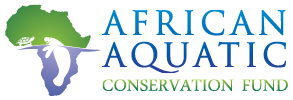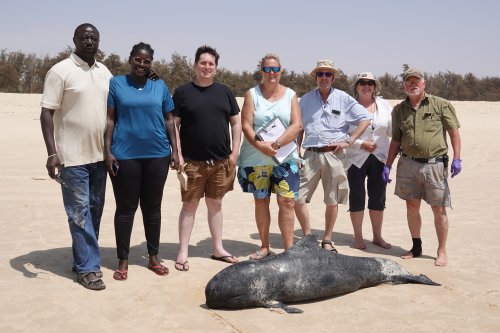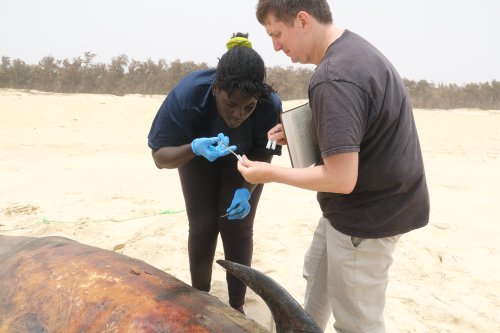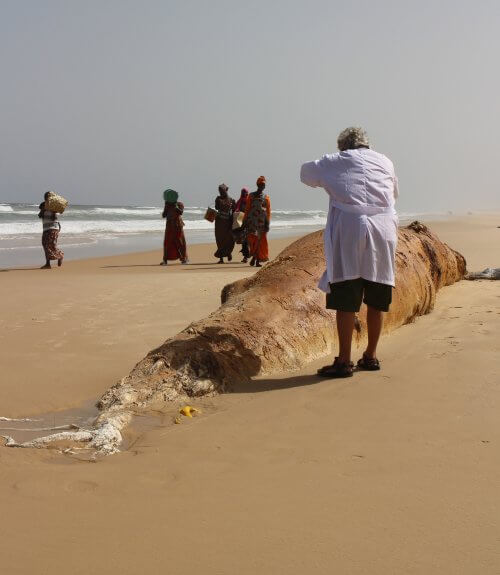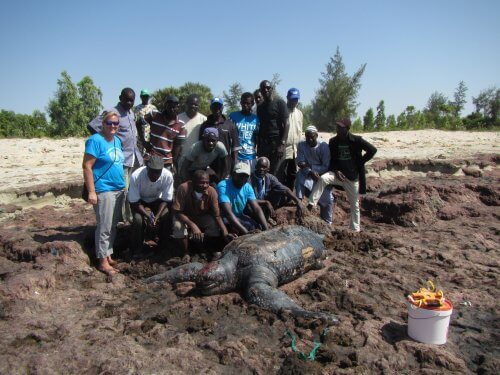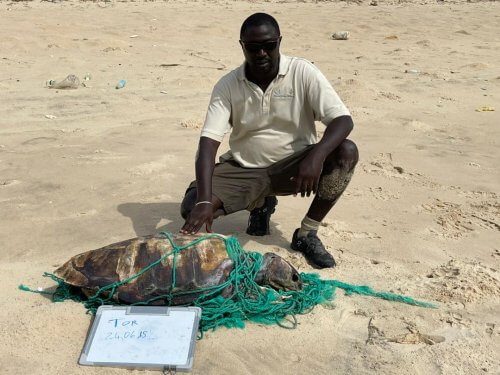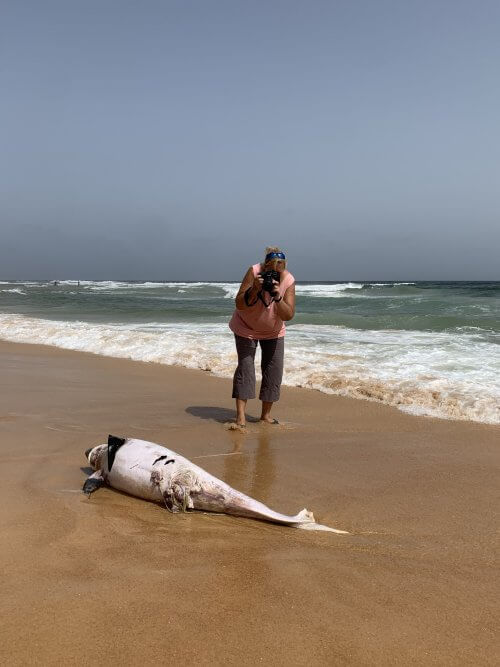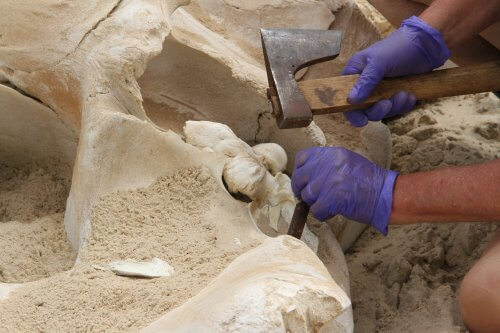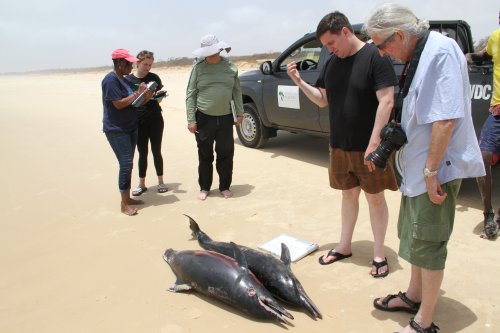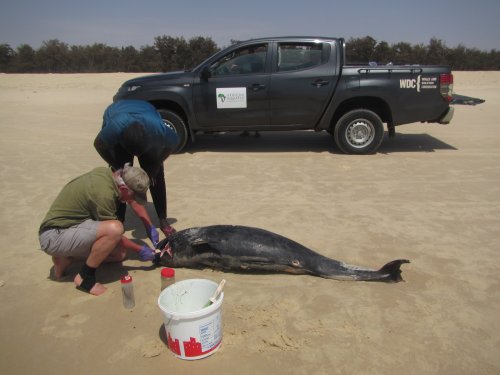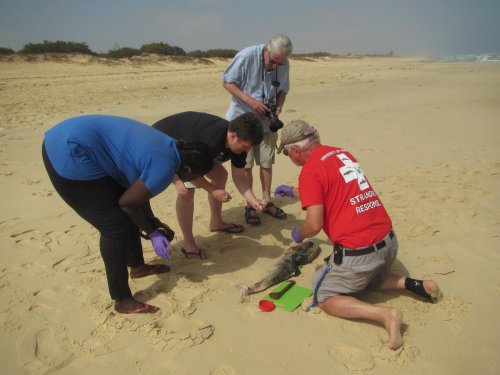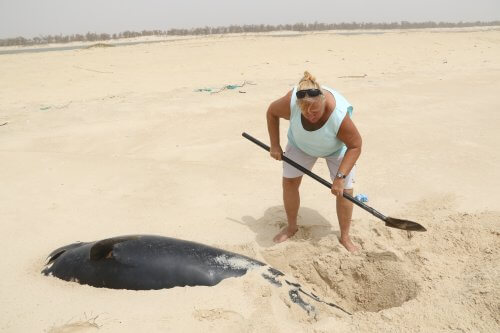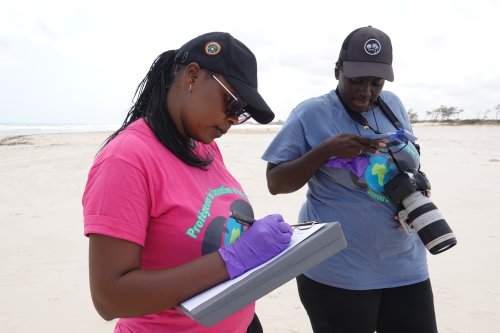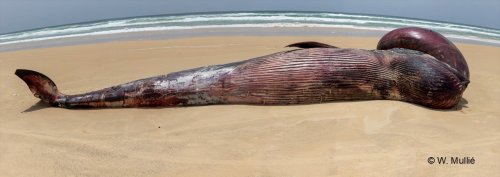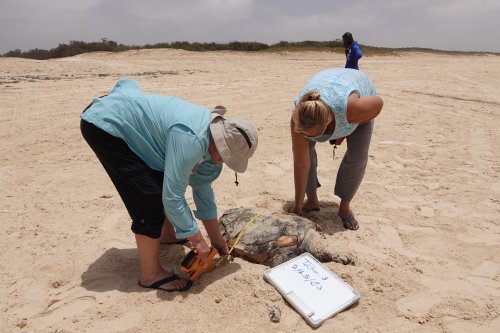Program Description
Senegal’s marine wildlife includes over 26 species of cetaceans, the African manatee, and four species of sea turtles, all of which are protected species under both international and Senegalese national laws. We have recently documented four new cetacean species in Senegal.
Beginning in 2014, we began quarterly surveys of the north coast between Dakar and St. Louis, Senegal to document stranded sea turtles, cetaceans, and other wildlife. In 2016, we also began responding to stranded dolphins, whales and sea turtles on Senegal’s central coast.
All stranded marine mammals and sea turtles are documented and sampled for genetics and other biological studies. Carcasses are examined for signs of fisheries interactions or other human-caused mortality, and if found, these cases are thoroughly documented with samples of fishery gear collected, if available. We’re also developing a coastal network of fishermen, national parks and marine protected area staff, conservation professionals, and volunteers to report marine mammal and sea turtle sightings and strandings throughout the year, so that the mortality of protected species can be accurately documented, and samples can be collected more quickly and effectively once animals strand. Access to fresher carcasses also increases the likelihood that their causes of death may be able to be determined. All stranding data is analyzed by species, locality, season, and cause of mortality to detect potential trends in stranding occurrence. Additionally, we lead education programs in local communities to raise awareness of the protected status and threats to marine mammals and sea turtles.
Periodic monitoring of beaches and coastlines is a relatively inexpensive and easy way to assess marine mammals and sea turtles compared to aerial surveys or monitoring by ships. By collecting stranding information throughout the year over multiple years, we are able to estimate of trends in mortality by species, season, and cause (fisheries bycatch, offshore gas exploration, natural, etc.). It’s also a way to assess temporal trends of biodiversity of cetaceans and marine turtles, to detect any unusual mortality events (UMEs), and to estimate the impact of human activities in real time in Senegalese waters. With this information, we can work towards better regulation and strict control of the national legislation and international conventions to limit the mortality of cetaceans and sea turtles.
